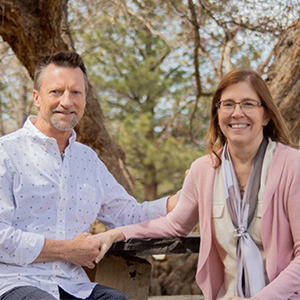There are many reasons why people might not want to seek professional therapy. Sometimes seeking therapeutic counseling makes people feel like they have failed in some way. They think it is a sign of weakness. In my opinion, knowing you need help and looking for it demonstrates wisdom, not weakness. I, (Lisa), have found therapy a must for my own emotional health.
Do You Need Therapy?
How do you discern whether you need therapy? I strongly recommend therapy if you:
- are depressed
- are harming or thinking about harming yourself
- are considering suicide
- plan to physically harm someone else
- feel you have gone backward in your healing process, or you have made no progress for several months
- have extremely painful relationships with loved ones, and they are not improving
- are feeling stuck in your anger or feel frequently fearful.
Some will say that talking with a friend will be enough. Yes, talking about your problems with someone who cares about you can be helpful. Sometimes though, we need to talk to someone who is more skilled than our friends.
How Can Yo Afford Therapy?
Finding the money to afford therapy is often a concern. There are several options you can try:
- Look for a therapist who will charge you on a sliding scale fee. This means they will charge you based upon how much you can afford.
- Faith communities will often help their members with therapy fees, or they have therapists who are members who will provide treatment for free.
- Many universities or seminaries offer therapy at a discounted rate, or for free.
- Places of employment offer mental health benefits or employee assistance programs as part of their health insurance package.
- Try group therapy sessions, which usually cost less than individual sessions, and can be just as effective.
What Can You Expect?
At Restored Hope Counseling, we like to talk with potential clients over the phone for a free 20-minute consultation. This has several benefits:
- Sometimes it is easier for a new client to talk about their problem over the phone rather than face-to-face.
- We can share a bit about ourselves.
- You and your potential therapist can discern if you are a good fit.
- We will find a time to meet that works for you.
If we decide we are indeed a good fit, we will send you some intake forms by email which we will ask you to read over and bring to your first appointment. During the first appointment, we will spend some time just listening to you, and what you feel you need from counseling. We will also go over a brief intake form with you. Then, we will schedule your next appointment.
After your first session, we will begin talking more in-depth about the concern(s) that prompted you to seek therapy. You will never be forced to share more than you feel comfortable doing. We will never shame or blame you for your issues. We will use proven therapeutic interventions to help give you insight about your issue and hope for a better future.
Finding a good therapist can be a process. You will want someone who can both challenge and support you in your journey toward healing. Having someone invest in you and supply you with the skills to live a healthy life is worth your investment in time and money.



